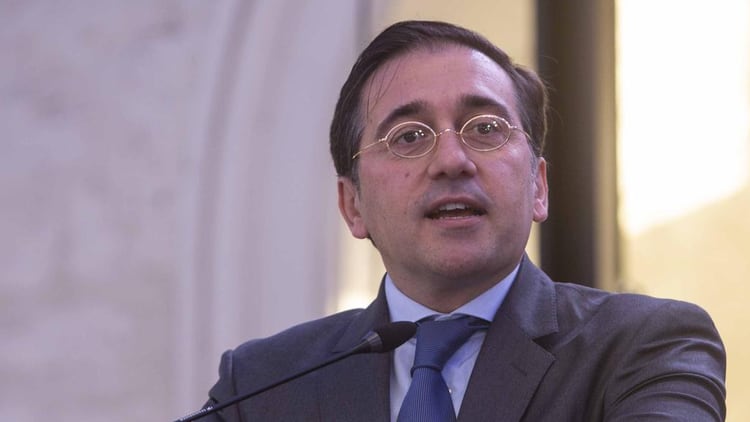The Diplomat
The PP wants to know if the Government has changed its position on Kosovo and if the decision to admit the passports of that province that broke away from Serbia and proclaimed its independence has been influenced by pressure from Pedro Sánchez’s investiture partners.
To try to receive answers to their concerns, the Popular Parliamentary Group has requested the appearance before the Congress of Deputies of the Minister of Foreign Affairs, José Manuel Albares, and has presented a battery of questions to be answered in writing by the Executive.
The popular ones, according to Europa Press, want Albares to “explain the change in position regarding the ‘visa liberalization agreement for Kosovo’, given that, in April 2023, the European Commission announced that Spain would be the only country in the Schengen area that said agreement would not apply”.
The PP adopted its initiative after the Ministry of Foreign Affairs confirmed last Sunday that Spain accepts the ordinary passport of Kosovo as valid since January 1, recalling that it is a measure that all EU countries will apply, even those like Spain do not recognize the independence of that territory, which are Slovakia, Romania, Greece, Cyprus.
In making that announcement, the Spanish Government insisted that the measure does not in any way imply the recognition of Kosovo as an independent State and that Spain’s position in this regard has not changed.
One of the reasons why Spain has not recognized the State of Kosovo, which unilaterally proclaimed itself independent in 2008, is to avoid giving arguments to Catalan or Basque independentists, even though they are very different situations. For this reason, in the battery of questions asked by the Popular Group, one is included to try to know if the fact of now validating the Kosovo passport is due to the fact that “it is being pressured or conditioned by its coalition partners to break the position of Spain maintained since 2008”.
Furthermore, the party led by Alberto Núñez Feijóo questions the Executive about the reason for making that decision and if it represents a “step” towards the recognition of Kosovo as a State. And finally, he asks how many States that Spain does not consider independent issue their own passports and are accepted by the Spanish authorities.
In the writings presented in the Lower House, the popular ones criticize that, “once again” and as happened with the support for Morocco’s plan for Western Sahara, the Sánchez Government has modified the traditional position and the Spaniards have had to find out through the media and social networks, “making evident their contempt for Parliament.”






